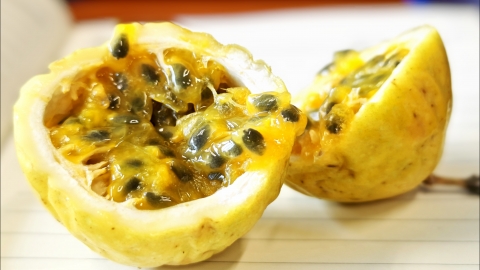Can diabetics eat passion fruit?
Generally, diabetic patients can consume small amounts of passion fruit when their blood sugar levels are stable, not exceeding 100 grams each time. However, if blood sugar levels fluctuate greatly or are poorly controlled, it is not recommended to consume passion fruit. If in doubt, it is advisable to consult a doctor in advance. Detailed analysis is as follows:

If diabetic patients have successfully controlled their blood sugar levels within a reasonable range (fasting blood glucose 4.4-7.0 mmol/L, postprandial 2-hour blood glucose <10.0 mmol/L) through diet, exercise, or medication, consuming small amounts of passion fruit can help supplement vitamins and dietary fiber. Dietary fiber can also delay sugar absorption, assisting in maintaining stable blood sugar levels. However, it is important to consume passion fruit between meals, rather than with meals, to avoid a叠加 increase in blood sugar.
If a diabetic patient's blood sugar levels remain consistently high or fluctuate frequently, the natural fructose in passion fruit may further elevate blood sugar levels, increasing the metabolic burden on the body. Additionally, adding sweeteners such as honey or syrup when consuming passion fruit will further increase sugar intake, making it more likely to cause sudden spikes in blood sugar and potentially trigger complications.
Diabetic patients should monitor their blood sugar levels before consuming passion fruit to confirm their current glycemic status. After consumption, they should also observe any changes in blood sugar to understand how their body reacts to this fruit. If abnormal increases in blood sugar or other adverse reactions occur after consumption, they should stop eating passion fruit immediately and consult a healthcare professional to adjust their dietary plan.








